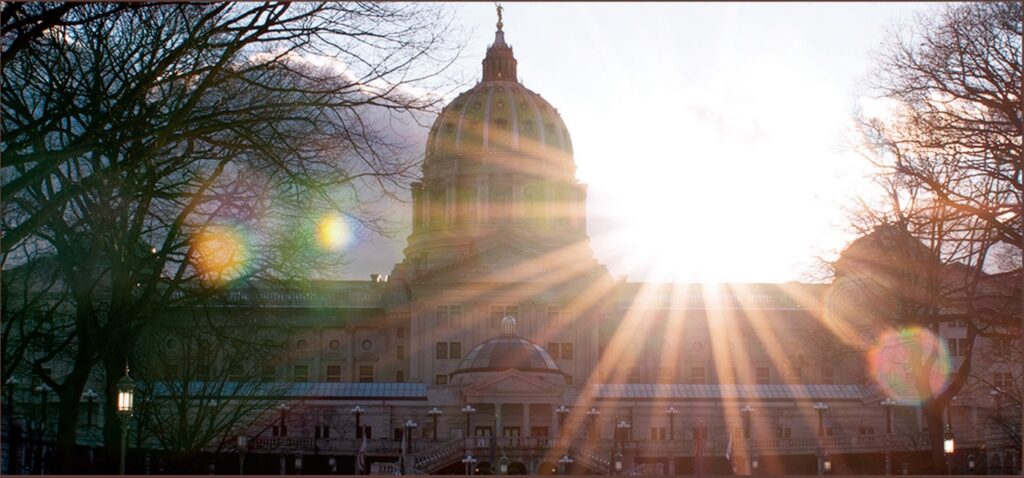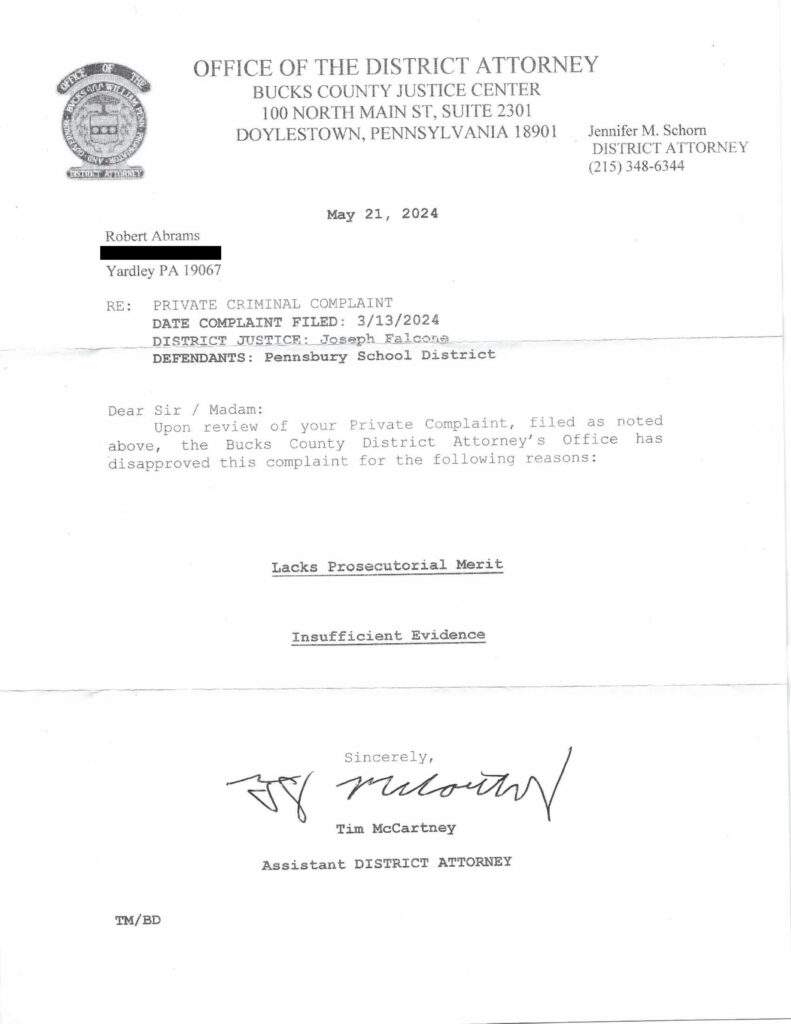It appears that Pennsbury School District is once again struggling to comply with the PA Sunshine Law, or perhaps they believe the law doesn’t apply to them. Last week on PSD411, we reported to the community that Robert Abrams and Jennifer Metzger accused the district of failing to finalize the agenda within 24 hours of the meeting and not providing sufficient details for the public to understand the discussions. Now, the Bucks County Courier Times is also alleging that Pennsbury has violated the PA Sunshine Law. Click the link below to read the full story:

What Are The Latest Allegations?
Bucks County Courier Times journalist Jess Rohan’s recent article highlights allegations of potential abuse in a Special Education classroom at Central Bucks School District. The two staff members involved have taken leave and the district has chosen to protect their identities. This decision has sparked multiple headlines in the newspaper, which has revealed confidential information about the staff members under investigation.
Rohan expanded her focus to examine how other Bucks County school districts handle their communications regarding administrative leave. In this broader context, she alleges that Pennsbury School District appears to be in violation of the PA Sunshine Law.
For the article, Rohan sought expert legal opinion from Melissa Melewsky of the Pennsylvania NewsMedia Association. Melewsky asserts that the spirit of the PA Sunshine Law is to “give the public enough information about what the board is voting on for people to give ‘meaningful input’ on board business.” She further emphasized that “Boards should provide enough information that the public understands what officials are voting on; I shouldn’t have to question what happened after the board voted.”
Melewsky concluded her legal opinion by stating, “There is no ‘bright line’ in case law that determines exactly how much detail should be included on leaves of absence lists, but an anonymized list is a problem, especially in situations where there’s little risk of violating employee privacy.”
What Is The PA Sunshine Law?
The Pennsylvania Sunshine Act, also known as the Open Meetings Law, mandates that government agencies conduct their business in an open and public manner. Enacted in 1986, the law requires that meetings where official actions are taken or deliberations occur must be accessible to the public. This includes providing prior notice of such meetings and allowing the public to attend, participate, and comment2.
The primary purpose of the Sunshine Act is to promote transparency and accountability in government operations. By ensuring that the decision-making processes of government bodies are open to public scrutiny, the law aims to foster trust between citizens and their government. It applies to a wide range of entities, including state and local agencies, school boards, and municipal authorities3.
In addition to promoting transparency, the Sunshine Act also encourages public participation in government affairs. Citizens have the right to observe and comment on the actions of their government, which helps to ensure that decisions are made in the best interest of the community. The law also includes provisions for executive sessions, where certain sensitive matters can be discussed privately, but these sessions must be properly announced and limited to specific topics.
Why Do Government Agencies Consistently Violate Sunshine Laws?
In her remarks for the news story, Melissa Melewsky pointed out that “Districts could face court injunctions or have to pay attorney fees from civil lawsuits for violating the act.” She further added that “there are also criminal penalties, but those are rare.” To better understand the implications, here are the consequences a government agency may face for violating components of the PA Sunshine Law:
Civil Penalties
- Fines: Government agencies can face civil fines if they are found to have violated the Sunshine Act. These fines are typically imposed by a court following a legal action brought by an individual or organization.
- Legal Actions: Individuals can file a civil action against the government agency within 30 days of discovering the violation, but no more than one year after the violation occurred.
Criminal Penalties
- Summary Offense: Intentionally violating the Sunshine Act is considered a summary offense. Public officials found guilty of this can face fines ranging from $100 to $1,000 for a first offense, and up to $2,000 for subsequent offenses.
- Court Costs: In addition to fines, the court may also require the defendant to pay the costs of prosecution.
Individuals can file a private criminal complaint with the county district attorney, who will decide whether to pursue criminal prosecution. Below you will see what happens when you file a complaint with Bucks County District Attorney Jennifer Schorn even when there is irrefutable evidence caught on video that a quorum was met at PHS Building Community Meeting that would require Pennsbury to offer Public Comment.
So when you are at risk of a minimal fine that requires proof of intent and your District Attorney has no interest in enforcing the law, the result is that School Districts are simply regulating themselves….therefore why should they comply?

How Do I Find Information About Leaves At Pennsbury?
Details about Pennsbury staff members on leave can be found in the Board Docs within the Agendas at the Board Agenda Meetings. These documents provide information about the individual taking leave, including the start date and the expected return date. Below are the details from the most recent Board Meeting held on February 20, 2025:
Why Is Regina Rausch’s Leave Not Found On Board Docs?
On May 14, 2024, Patch.com released an exclusive news story revealing that Regina Rausch had been placed on administrative leave. Email communications obtained by Patch showed Superintendent Tom Smith informing staff of Rausch’s leave and requesting that her privacy be respected. District spokeswoman Jen Neill confirmed to Patch that Rausch was on administrative leave but declined to provide further details.
A search of Pennsbury Board Docs indicates that Regina Rausch’s administrative leave was never presented to or voted upon by the Pennsbury School Board. This lack of official reporting raises questions about the circumstances surrounding Regina Rausch’s departure.
Could this be another violation of the PA Sunshine Law?